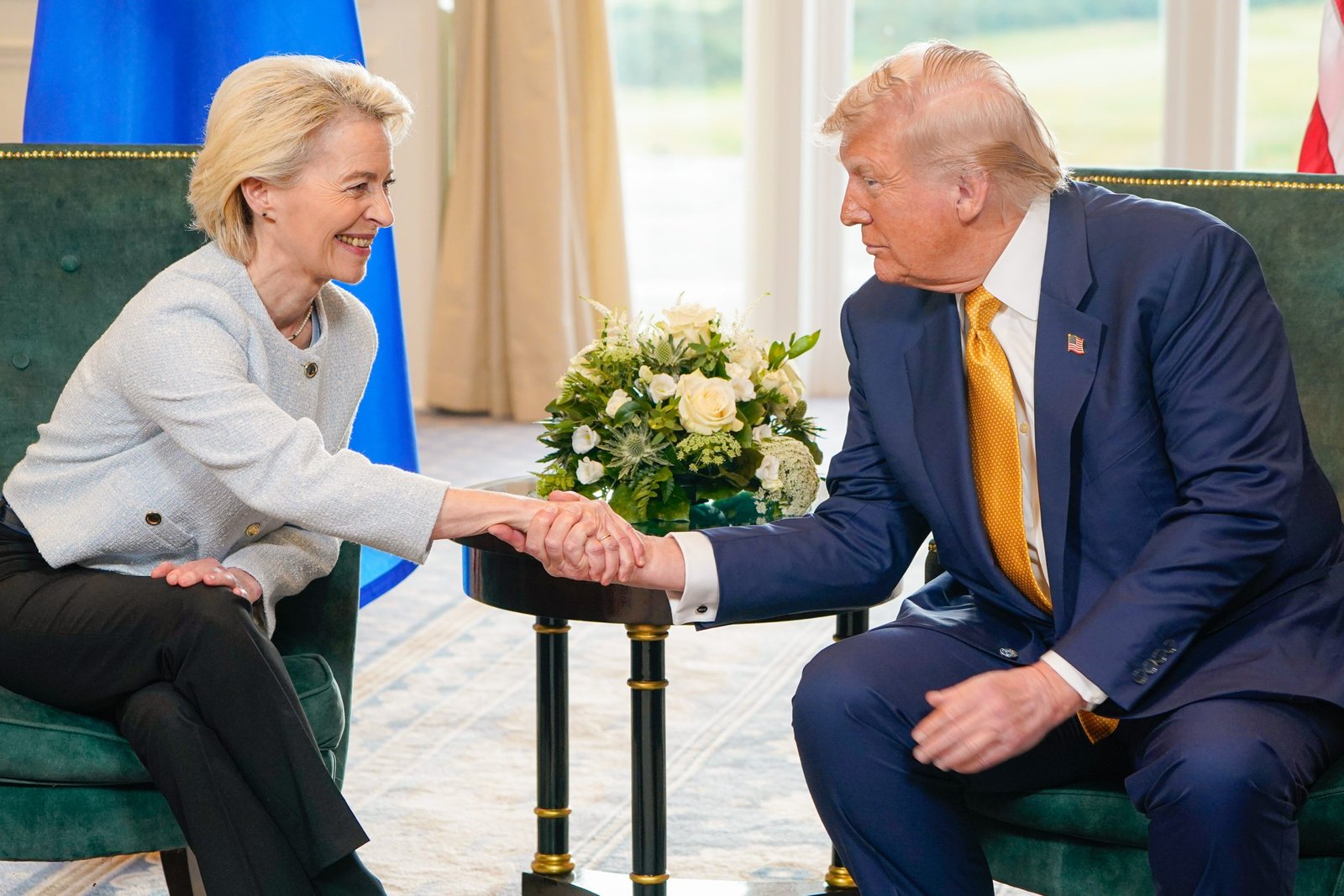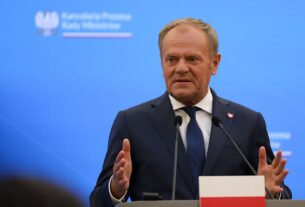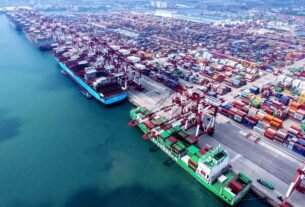The European Commission fiercely defended the recent EU-US trade deal from EU lawmakers’ criticisms on Wednesday, arguing that Brussels achieved “the best deal available” amid the “global disorder” triggered by Donald Trump’s sweeping tariffs.
In an often heated special hearing of the European Parliament’s trade committee, MEPs from across the political spectrum denounced the July “framework agreement” between Washington and Brussels, which leaves most EU firms facing a 15% minimum levy on exports to the US.
Committee chair Bernd Lange (S&D) repeatedly disparaged the agreement – which falls well short of a traditional trade pact – as a “so-called deal” during the hour-and-a-half-long meeting, drawing applause from MEPs.
The German socialist’s criticisms were echoed by MEPs from left-wing, centrist, and far-right groups, including lawmakers from Commission President Ursula von der Leyen’s own centre-right European People’s Party (EPP).
“Listening to this debate, I have the impression that you want to give us the responsibility for the US tariff policy,” said Sabine Weyand, director-general at the Commission’s DG Trade, to audible groans from MEPs.
“There is no one, not a single country, that got a deal comparable to ours,” she added. Weyand noted that, unlike other US trading partners, the EU’s 15% duty is not “stacked” on top of previous levies and that Washington also agreed to provide tariff exemptions for key EU exports, including aircraft and generic pharmaceuticals.
She also suggested that the agreement “creates a platform” for further “engagement” with the EU’s largest trading partner.
Weyand’s comments come ahead of a crucial parliamentary vote on the Commission’s proposal to lower its duties on US and EU industrial goods – which, under the terms of the EU-US deal, is required before Washington cuts its duties on EU cars from 27.5% to 15%.
Jörgen Warborn, a Swedish EPP lawmaker, urged his fellow MEPs to support the proposal despite the deal’s “unbalanced” nature.
“If, colleagues, you vote down this legislative process, then you are asking to continue to negotiate from a situation where you have escalated the situation,” he said. “I think we should rather continue to de-escalate the situation, and then continue to negotiate.”
Echoing other senior EU officials’ remarks, Weyand further suggested that Brussels would seek to soften the impact of US tariffs by strengthening trade ties with “like-minded partners”, including Mexico and the Mercosur bloc of South American countries – whose trade agreements were officially unveiled by the Commission earlier on Wednesday.
“Are we in a new global order? No, we are in a state of global disorder,” Weyand said. “I’m afraid we are in a situation where the old order is gone, and it will not come back. And where we have the task, as Europe, to design a new order.”
(vib)





